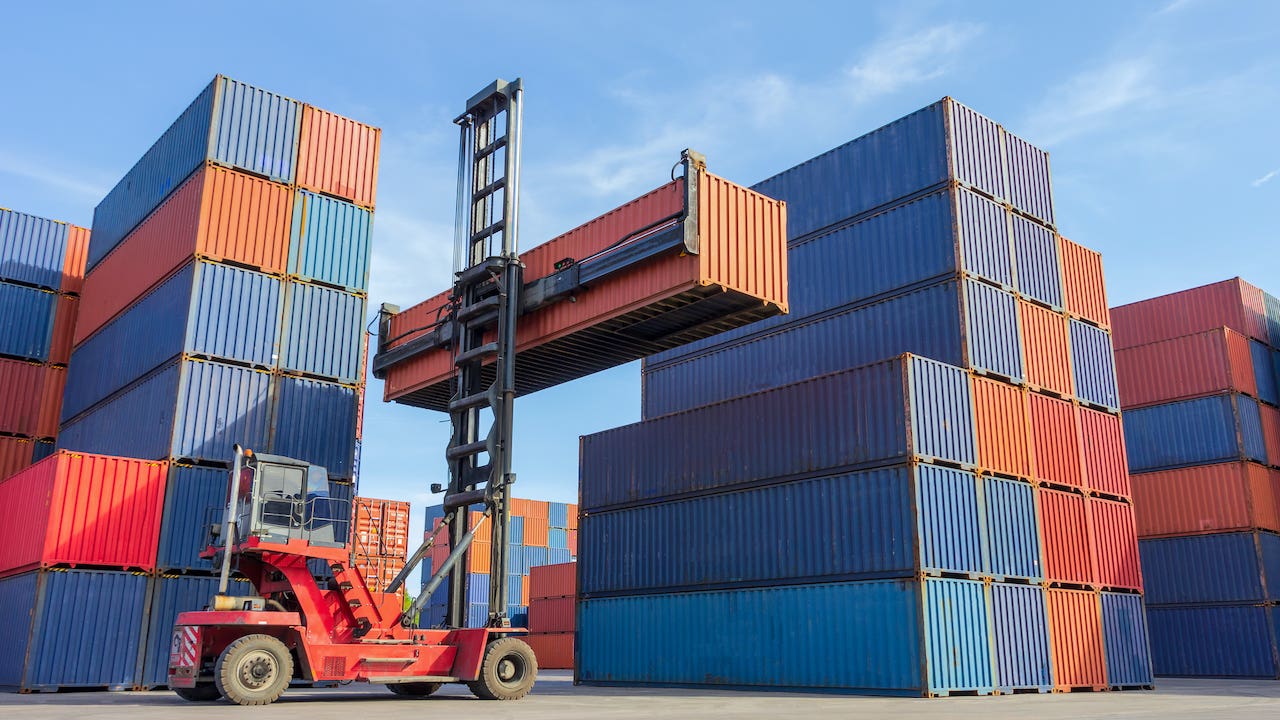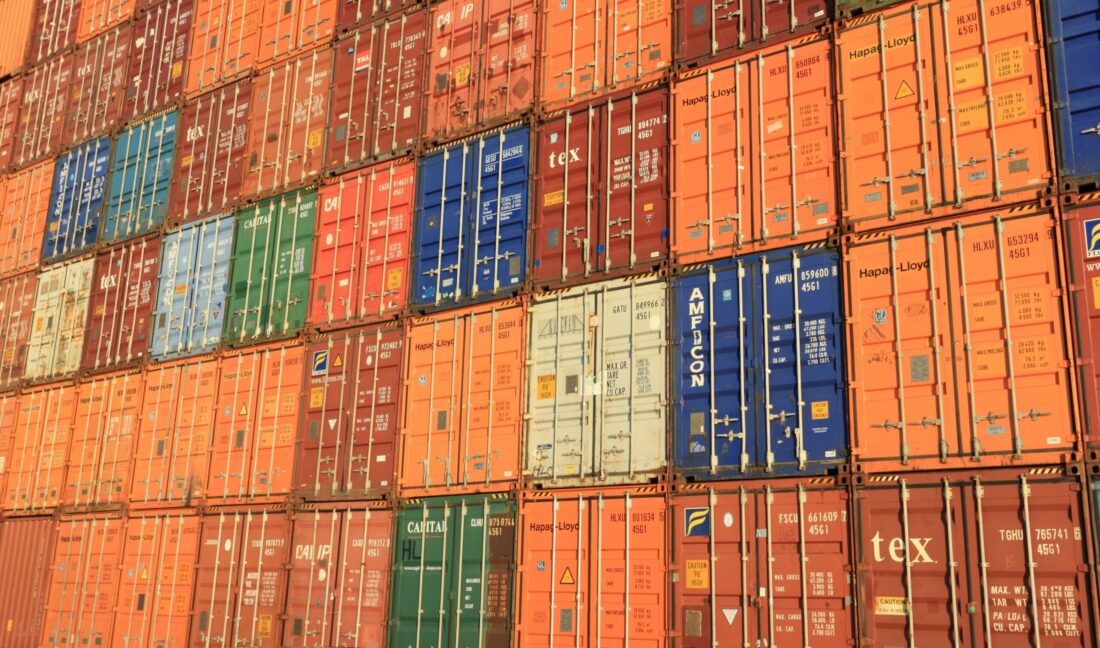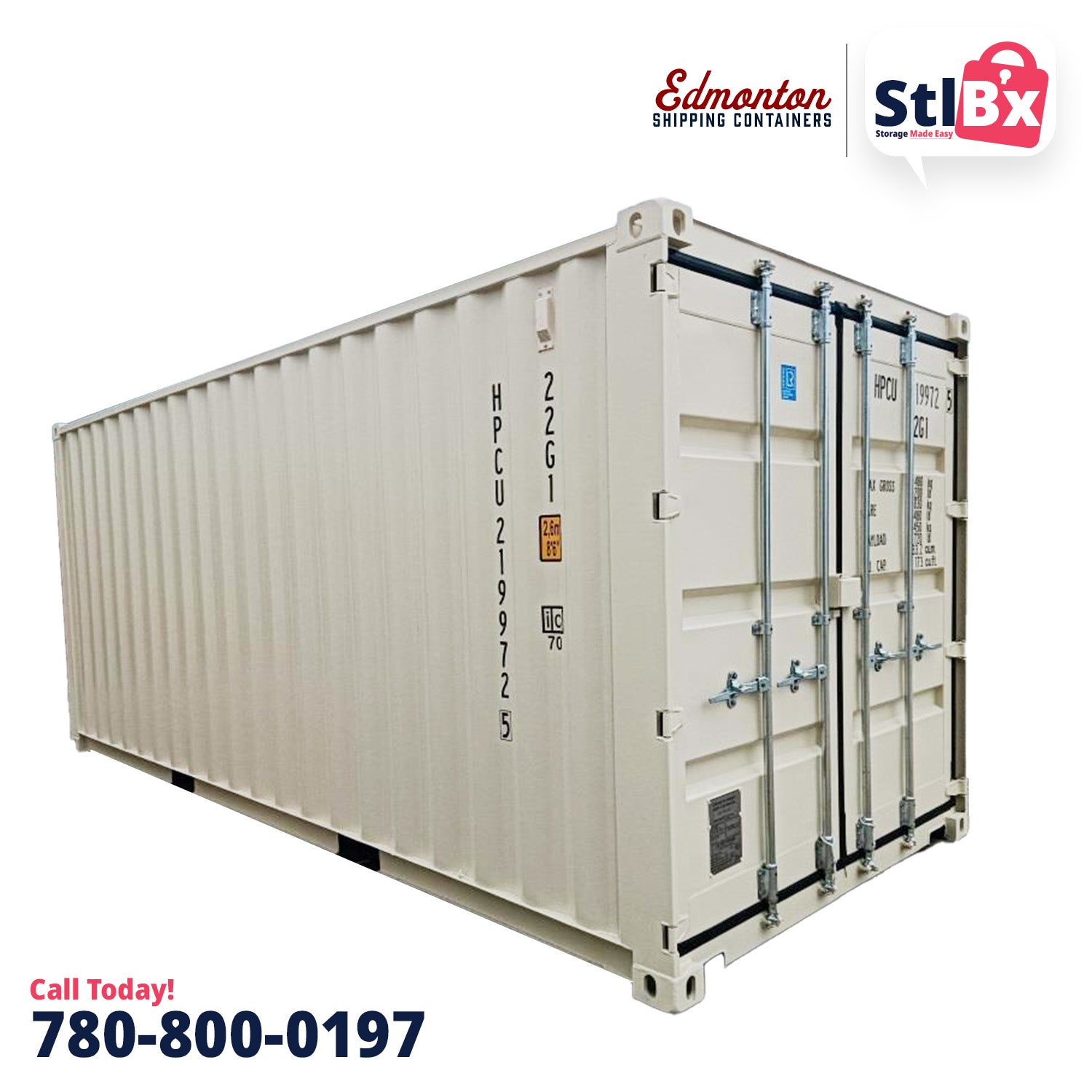How to maintain Shipping Containers for Sale for long-term use
Everything You Need to Learn About Shipping Containers and Their Practical Applications
Shipping containers have progressed from mere tools for transport to flexible frameworks with numerous useful applications. Their durable design and conventional sizing make them optimal for a series of uses beyond delivery. From innovative real estate options to lasting farming, their versatility is notable. Yet, the opportunities do not finish there. Discovering their various features exposes unexpected insights into modern challenges and imaginative services. What other duties could these containers play in today's world?
The Design and Framework of Shipping Containers

Inside, containers are created to optimize space, often featuring wooden or steel floor covering that can sustain significant weight. Air flow systems might be incorporated to stop dampness buildup, which is essential for sensitive freight. Furthermore, reinforced corners permit simple handling by cranes and forklifts, promoting seamless loading and unloading. This thoughtful layout and structure contribute to the containers' flexibility across different shipping and storage applications.
Advantages of Using Shipping Containers
While numerous transportation approaches have their advantages, using delivery containers attracts attention as a result of their unparalleled versatility and efficiency. Shipping containers offer a standardized size, making them easy to stack and carry across various settings of transportation, consisting of vehicles, trains, and ships. This standardization lowers filling and unloading times, thus boosting general productivity.
Shipping containers are created from resilient products, offering robust security for goods during transit. They are weather-resistant and protected, reducing the risk of damage from ecological elements or theft. Furthermore, the modular layout of shipping containers permits simple customization, making it possible for services to adapt them for different purposes, such as storage space or mobile offices.
Their transportability and cost-effectiveness make delivery containers an eye-catching alternative for companies looking to streamline logistics and supply chain procedures. These benefits add to the expanding popularity of shipping containers in various industries.
Innovative Housing Solutions With Shipping Containers
Innovative real estate services have arised as an interesting application of delivery containers, leveraging their integral staminas for domestic usage. These functional structures use a lasting option to traditional structure materials, commonly at a fraction of the cost. Architects and developers have actually changed containers right into elegant, functional homes, dealing with varied way of livings and choices.

Shipping containers are ecologically friendly, promoting recycling and reducing waste. Lots of tasks concentrate on energy efficiency, incorporating eco-friendly roofings and solar panels. As urbanization increases, these ingenious housing solutions offer a functional action to real estate shortages while fostering an unique building aesthetic.
Shipping Containers in Retail and Pop-Up Shops
An expanding variety of merchants are transforming to shipping containers as a vibrant solution for retail areas and pop-up stores. These functional structures use an affordable option to traditional stores, allowing services to produce distinct, captivating environments that draw in clients. Their modular style allows very easy transportation and installment, making them optimal for seasonal or short-lived retail locations.
Stores can personalize shipping containers to reflect their brand identity, changing them right into visually appealing shops that stand apart in crowded industries. The small nature of containers also urges efficient usage of area, allowing for creative designs that optimize customer circulation and involvement. Shipping containers can be located in non-traditional locations, such as metropolitan parks or vacant whole lots, raising accessibility and foot traffic.

As the retail landscape develops, delivering containers provide a cutting-edge and adaptable remedy that satisfies the demands of modern-day consumers while enhancing the shopping experience.
Lasting Farming Practices Using Shipping Containers
Lasting farming methods increasingly include delivery containers as innovative solutions for agriculture - shipping container storage. These container ranches use hydroponics to take full advantage of space and source efficiency, supplying a cost-efficient strategy to food manufacturing. By transforming shipping containers right into agricultural centers, farmers can resolve food safety and security and ecological worries concurrently
Container Farming Conveniences
While typical agriculture encounters obstacles such as land shortage and environment adjustment, container farming offers a feasible alternative that makes the most of room and sources. This innovative method permits year-round plant production in controlled atmospheres, decreasing dependence on climate condition. Container farms utilize less water than standard farming, advertising sustainability and conservation. They can be developed in metropolitan locations, bringing fresh fruit and vegetables closer to consumers and lowering transport emissions. Additionally, the modular nature of delivery containers allows scalability, allowing farmers to adjust operations based on need. Container farming likewise lessens chemical use by developing an enclosed ecosystem, eventually boosting food safety. As metropolitan populaces expand, container farming arises as a sensible service to meet the increasing demand for local, lasting food sources.
Hydroponics in Containers
Hydroponics, which enables plants to grow without dirt by utilizing nutrient-rich water, thrives within the boundaries of delivery containers, making it a suitable method for city farming. These containers produce a regulated environment that optimizes humidity, light, and temperature, enabling year-round growing. With limited space in urban areas, shipping containers find out here supply a scalable option for growing fresh fruit and vegetables. Hydroponic systems within containers can include various techniques, such as nutrient movie method (NFT) and deep water society (DWC), which take full advantage of return while lessening water use. This innovative strategy not just enhances food safety and security but also lowers the carbon impact connected with traditional farming methods. Subsequently, hydroponics in containers represents a forward-thinking service for sustainable urban food production.
Cost-efficient Agriculture Solutions
As food manufacturing deals with raising difficulties because of climate adjustment and urbanization, shipping containers emerge as an economical service for farming. These versatile frameworks can be repurposed for numerous sustainable farming methods, such as hydroponics and upright farming. By utilizing controlled settings within containers, farmers can optimize development cycles and minimize resource intake, including water and plant foods. Additionally, shipping containers can be strategically positioned in metropolitan locations, decreasing transport costs and improving accessibility to fresh fruit and vegetables. Their modular nature permits for scalability, enabling farmers to expand operations as demand grows. Moreover, repurposing containers adds to lose decrease, aligning with eco-friendly farming initiatives. In general, delivering containers present innovative chances for lasting and reliable food manufacturing.
Emergency Situation and Disaster Relief Applications of Shipping Containers

Organizations often utilize shipping containers to produce mobile centers or area hospitals, guaranteeing that treatment reaches those in need. Furthermore, they can be changed right into command facilities for working with rescue procedures, thereby enhancing organizational effectiveness throughout dilemmas.
In addition, containers can be modified to store important goods such as food, water, and clothing, securing supplies till they are distributed. Their mobility allows them to be easily moved to various places, making certain that assistance gets here where it is most urgently required. Overall, delivery containers play an essential duty in enhancing the effectiveness of catastrophe relief efforts worldwide.
Regularly Asked Questions
Exactly How Are Shipping Containers Transported From One Place to One More?
Shipping containers are transferred by means of ships, vehicles, and trains, making use of cranes for loading and dumping. This multi-modal transport system makes sure reliable movement across land and sea, attaching international supply chains and promoting worldwide profession.
What Is the Typical Life Expectancy of a Delivery Container?
The ordinary life-span of a delivery container commonly varies from 10 to 25 years, relying on maintenance, usage, and environmental aspects. Appropriate treatment can expand their functionality, while neglect may bring about damage and damage.
Can Shipping Containers Be Modified for Various Usages?
Yes, shipping containers can be modified for various uses. They work as homes, workplaces, pop-up shops, and storage space devices. Their adaptability enables for creative adaptations, making them ideal for a variety of applications.
Are Shipping Containers Ecologically Friendly?
Shipping containers can be eco-friendly, as they advertise repurposing and reusing. Their durability minimizes waste, while their usage in alternative housing and organizations decreases the requirement for brand-new materials, adding to lasting Source practices.
How Do I Select the Right Size Shipping Container?
To pick the best dimension shipping container, one must evaluate storage needs, consider the intended use, and review space schedule - sea can for sale. Typical dimensions include 40-foot and 20-foot containers, each serving different storage space and transport requirements efficiently
Ingenious housing remedies have emerged as an amazing application of delivery containers, leveraging their integral toughness for household use. The versatility of shipping containers allows for creative layouts, from single-unit residences to complicated multi-container arrangements. Sustainable farming next practices significantly include delivery containers as ingenious solutions for agriculture. Furthermore, the modular nature of delivery containers makes it possible for scalability, allowing farmers to adjust operations based on need. Hydroponics, which allows plants to grow without dirt by using nutrient-rich water, thrives within the confines of delivery containers, making it a perfect technique for city farming.